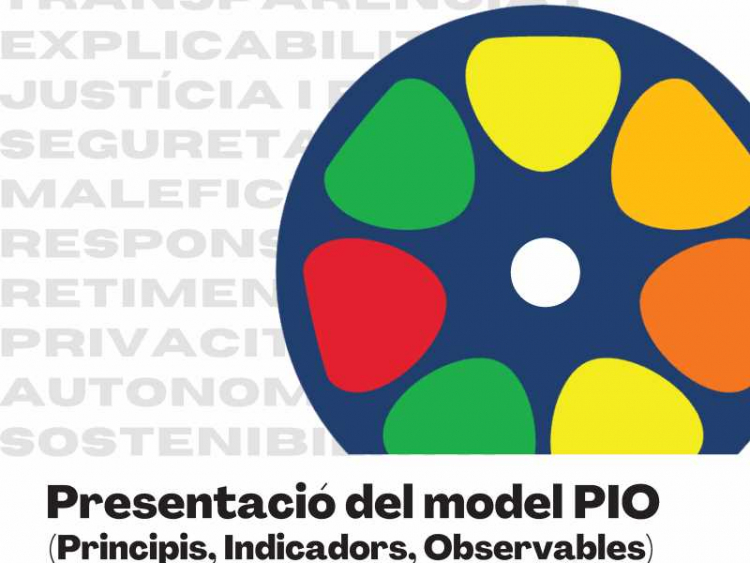What are the risks and benefits of artificial intelligence? Who is affected by it and how? How can people's well-being be improved with these technologies? With the general aim of answering these questions and showing that it is possible to move in this direction, the Observatory of Ethics in Artificial Intelligence of Catalonia (OEIAC) presents the website and report on the PIO model (Principles, Indicators, Observables) "A proposal for an organizational self-assessment on the ethical use of data and Artificial Intelligence systems", designed and developed by OEIAC itself with the support of the University's Department of the Vice-Presidency and Digital Policies and Territory of Girona and the i2cat Foundation.
What are the specific goals?
- Raise awareness of the different agents of the quadruple helix, that is, the presence of the four key pillars in any innovative process: universities and research centers, public administration, business fabric, and citizens, who use data and artificial intelligence systems , on the importance of adopting fundamental ethical principles to minimize known and unknown risks and maximize opportunities.
- Identify appropriate or inappropriate actions through a self-assessment proposal based on principles, indicators and observables to value, recommend and advance the ethical use of data and artificial intelligence systems.
The PIO model is a further step in this direction as it provides a theory-to-practice integration of fundamental ethical principles of AI. In this sense, it proposes the use of a model that can be used in any phase of the life cycle of data and AI systems.



